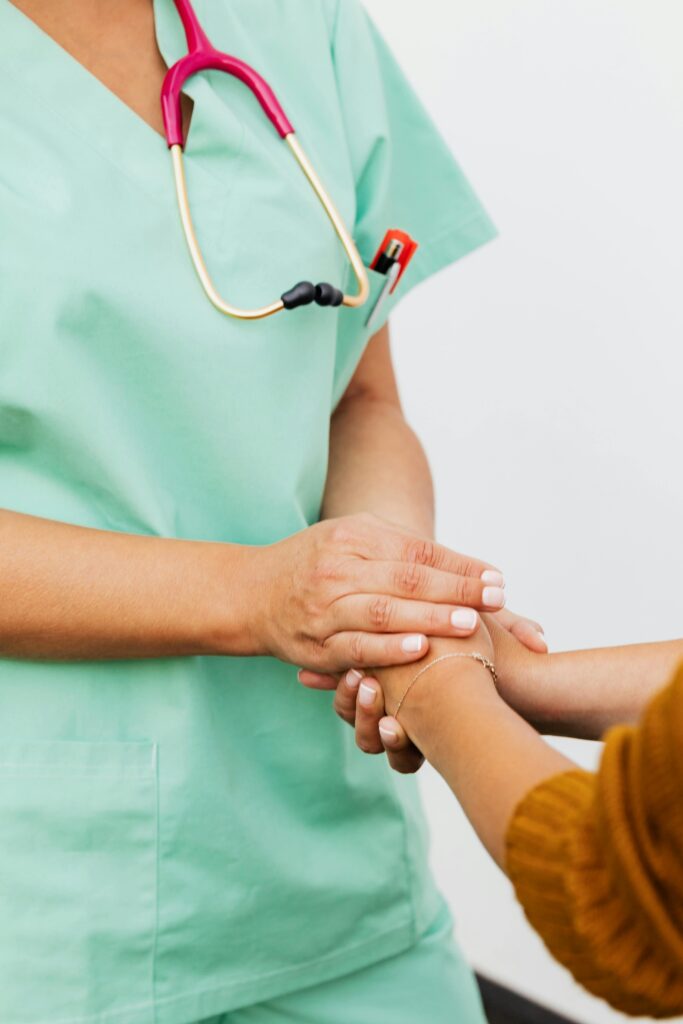Self-Harm Awareness Day, observed on 1 March in many countries, acts as a reminder that many people suffer through internal struggles while those close to them may be completely unaware. The global health experts at COLUMBIA pure watch for these signs when consulting with clients and we know that at times these struggles may lead people to engage in self-harming behaviours. We never know the internal turmoil that others may be dealing with so it is up to us to cultivate a compassionate environment of understanding and support. In this blog we will explore the ways we can be present with empathy for those around us who may be grappling with self-harm.

Understanding self-harm
Before we can attempt to help others, it’s essential that we have some understanding of self-harm and why people might engage in this behaviour. For many people it is a way of coping with the stress, emotions, and mental health challenges they may find overwhelming. Self-harm can involve a number of destructive behaviours, including cutting, burning, or pulling out hair. It can be a way of distracting from inner pain or a cry for help.
Breaking the stigma
In order to be able to support someone who is self-harming, it is important that you understand that it is not an attention-seeking behaviour but rather a sign of deep emotional distress so it is vital that you approach the situation from a place of empathy and with an open- mind, avoiding judgement and criticism.
Educate yourself
Before you attempt to support someone close to you, take the time to educate yourself about self-harm and the mental health issues that surround it. In order to provide comfort, it helps if you understand the struggles your loved one is facing and have acquired some of the appropriate language to be able to discuss the topic caringly.
Non-judgemental conversations
Providing a safe space for communication is a vital tool to help someone struggling with self-harm. Letting your loved one know that you care, that you will listen without judgement and that you want to understand their feelings and experiences can be a powerful help to them, but remember to let them set the pace, opening up when they feel able.
Providing emotional support
Individuals dealing with self-harm require a feeling of genuine support. They may be experiencing emotions that they don’t understand but make sure they see that their feelings are valid while giving reassurance that it is not a sign of weakness to ask for help but rather it is a sign of strength and self-awareness.
Seeking professional help
As individuals there is only so much we can do to support our loved ones. It is very important that the person self-harming is encouraged to seek help from a professional who can provide the necessary tools and strategies to help them overcome the underlying issues that are leading to self-destructive behaviours and help them work towards healing.
Create a safety plan
Work with your loved one to plan how they might react to a time of crisis in a safe way. Perhaps identify a number of trusted friends or family members as well as professionals who can provide support during difficult times. Knowing that there is a plan in place can give strength to those who are suffering and can help them to approach challenging situations with more confidence.
Maintain boundaries
While you are supporting your loved one it is essential that you also look after yourself and your personal well-being. Make sure that you establish healthy boundaries so that you don’t risk sacrificing your own health. Try to encourage your loved one to have more than one trusted support so that there is a network in place to share the load.
Self-Harm Awareness Day is an opportunity for us to understand more about this issue and to ensure that we have the tools and knowledge at our finger tips to provide support to those who are facing an internal battle. By fostering a caring and open environment where your loved one can express their pain, you can make a significant difference in their journey towards recovery.
DISCLAIMER:
Please note, all content provided is for informational purposes, and is believed to be accurate and current at the time of posting. It should not, at any time, be used in place of appropriate professional or expert advice.


